- Home
- Fay Weldon
The New Countess Page 2
The New Countess Read online
Page 2
Reginald backed but did not leave the room. He would not be reprimanded, Minnie knew. He never was.
‘A good-looking feller, quite the swank,’ Billy had said of him the previous year when the in-laws were over for Wimbledon. ‘Gets away with anything. You bet he knows more than he should.’ Which Minnie thought was probably the case. It was one of the problems with living with servants. Not that the others seemed to notice, let alone worry about that.
Isobel let the envelope drop from her hand as if it was of little account.
‘It’s your sister Rosina,’ she said to Arthur, in what was almost a tone of accusation. ‘The steam ship Ortona docks at Tilbury tomorrow afternoon. Rosina will be on it. No explanation, no information, nothing. She just announces her arrival. How very rude, how very Rosina.’
‘Rosina! But how wonderful!’ cried Minnie into a silence which fell on the whole party. Even the little children stopped their clatter. Minnie hesitated. Rosina was disapproved of. But why? Rosina was difficult, and moody, true, and had left peremptorily for Australia, married suddenly under some kind of cloud, but she was family, only daughter of the house. Some show of enthusiasm was surely allowed? Back home in Chicago there’d have been shrieks of joy and everyone embracing, and tears shed, and a rushing out to tell everybody the good news. The prodigal sister returned. But this was Belgrave Square and spontaneity was not the way of things.
‘Dear Rosina,’ said Arthur, casually and calmly. ‘The mischief maker!’ And then, with a glance at Minnie, ‘Though naturally one’s jolly glad to hear from her after so long. How long, eh? Three years?’
‘Your sister embraces silence,’ said Isobel. ‘Only ever the briefest of letters and there’s been nothing for a good six months.’
‘No news of the husband or a child?’
‘Nothing. Not even that courtesy.’
‘How about her parrot?’
His mother ignored him and turned to Reginald.
‘The Ortona docks at Tilbury. Is it the Orient Pacific line?’
‘I’m afraid it is, my lady. An immigrant ship, returning half empty.’ He seemed rather amused.
‘How very uncomfortable for her,’ said her Ladyship. ‘Why always this perverse nostalgie de la boue – this desire to play the bedraggled?’
‘Even so, it’s our Rosina!’ protested Minnie. ‘It’s such good news! Someone to talk to!’ This sounded a little ungracious. Isobel looked at her rather strangely. So did Arthur. Minnie always tried very hard not to blurt things out and for the most part she succeeded, but today she had failed.
‘I have you to talk to, my dear, of course I do,’ she said to Arthur, to make amends, ‘at least I do when you are at home but you are so often in your workshop.’ She had made matters worse. Why did life have to be so difficult?
‘And I am sure you are busy enough with our children,’ he said, sensing an accusation. ‘You hardly have time these days to give me a second look.’
‘Well, well,’ said Isobel, fearing there was the making of a squabble in the air. ‘We will send Reginald to meet the Ortona tomorrow. Rest assured, Minnie, Rosina shall have a prodigal daughter’s welcome home. Though she could at least have given one proper notice.’
‘You could hardly expect that. A parrot doesn’t change its feathers, eh?’ said Arthur.
Minnie giggled, as she should not have.
Rosina had departed to Western Australia, with almost no warning, some three years before, in the company of a new husband, a Mr Frank Overshaw, theosophist and landowner. He was no catch for an Earl’s daughter, but Rosina was unmarried, past thirty, tall and ungainly, too clever for her own good and hardly in a position to be particular. Even so, the speed of the engagement and her departure had been unseemly, even scandalous, especially since Rosina had sailed on a ticket reserved for her own cousin Adela, Frank’s first choice of bride. It had been assumed there’d been the normal reason for haste but it had proved not to be the case. At any rate there had been no mention of a baby in the few brief letters Rosina had sent home: just descriptions of a land hot and dangerous beyond belief where the mail was bad and servants non-existent, and some requests for reference books: Emile Durkheim’s Rules of the Sociological Method, his treatise on suicide in aboriginal culture, and any of Max Weber’s early publications.
‘But Mama,’ said Minnie now – it was at Isobel’s request that Minnie called her ‘Mama’ – ‘someone from the family must be there to meet her. She has been away for three whole years – for all we know she may be ill.’
‘But the Ortona!’ said Isobel. ‘Tilbury, not even Liverpool,’ as if that settled the matter. But she put no difficulty in Minnie’s way, and even said their shopping trip to Heal’s could be delayed until Tuesday well enough: Minnie must certainly go and meet Rosina if she’d like to. One could only hope the boat got in reasonably on time, and poor Minnie didn’t have to wait around all day. Meeting boats was better left to the servants – but if it was what Minnie wanted... Isobel for one would spend the day with Robert at the House.
Then Arthur said that alas, he couldn’t go with Minnie: the Jehu III was at a critical stage: he had decided air cooling was a mistake, he must get back by the morning but Minnie was to wish Rosina very well and he would see her before long. He assumed she would be staying at least for a while at Belgrave Square.
So all was well, but Minnie wished she hadn’t thought, ‘My life is perfect,’ so loud and clear in her head. She had a niggling feeling the Gods had overheard and the ring of the front door bell, so close upon the thought, had been a sign of their displeasure. But how could Rosina coming home be bad?
An Alarming Proposition
26th June 1905, Newmarket
Robert took Isobel to Newmarket for the last of the flat racing. His wife did not care for horses but at least in an enclosure she was far enough from the animals to be safe. He had been insistent.
‘Westminster’s far too dull at the moment,’ he said, when Isobel suggested she meet him for lunch at the House of Lords, having spent the morning in the Visitors’ Gallery. He would take her instead to Newmarket, and show her off. ‘Cherry Lass is tipped to win the 1,000 Guineas and you shall wear a straw hat with flowers, a white mink stole, a skirt with a train and any amount of lace and frills.’
‘But I so like listening to a good Lords debate,’ she said, ‘and then lunching with you. The Thames sparkles and the river boats go by: it is a great treat.’
‘It will be a grand day at Newmarket,’ he said. She could see he was determined to go. ‘There’s nothing on in the House but the military stores reports, which means yet another post-mortem on the war in South Africa, and more nonsense from the Liberals about the poor enslaved Chinamen working in our mines there.’ He added that in case rumours had unsettled her, so far as their own Modder Kloof was concerned, all their particular miners, whether white or Chinese, enjoyed excellent conditions, had freedom of movement, very reasonable wages and lived as well as his own estate workers in Sussex. ‘Not a rock fall or a death has been reported for months,’ he said.
‘As any mine owner says before the rocks fall,’ said Isobel. Her father had started life as a miner and ended up as a coal magnate, and she knew well enough how the view from the worker’s end differed from that of the owner.
‘Oh my dear,’ said his Lordship. ‘Leave all that to Rosina when she returns. She was born to be the conscience of the family.’
Isobel was happy enough to do so, resigning herself to a day at the races, while murmuring that she hoped three years in the Antipodes had taught their daughter a few of the realities of life.
‘At least she is alive and presumably well,’ said his Lordship. ‘And there is no objection, I suppose, to her having her old rooms back at the house in Sussex now Adela is gone.’
Adela was Rosina’s cousin, who had lately married and gone to live in Switzerland where the progressive Ascona movement had its headquarters and naked sun worship was earnestly practised.
Robert agreed that would be unfortunate but added rather sadly, ‘Most people can be relied upon to tailor their beliefs to suit their interests, just not Rosina. Funnily enough, I rather admire her for it. Now, shall we just go off to the races and leave Minnie to meet the Ortona.’
Isobel felt suddenly cheerful: whatever had taken place before, her only daughter was coming home from over the seas after a three-year absence and she was glad. If a divorce had to be faced, so be it. An unfortunate marriage was better than no marriage at all: it could be seen as the way of the world rather than the fault of a neglectful mother. Now Adela had gone Rosina’s arrival was even something of a blessing. Arthur was so very much caught up with his business and his automobiles that Minnie must often feel alone. Perhaps Isobel should have gone with Minnie to Tilbury – but Robert needed her and one’s duty was surely more to one’s husband than one’s children. There were lots of children but only one spouse. And a day at the races was not so dreadful a fate.
Isobel chose a nautical theme for her day in Newmarket – a jaunty sailor-suit skirt and blouse in matching navy moiré, with a square white lace bib that fell over the head back and front – a wide white leather belt with an anchor buckle, and a cheerful little straw boater with an ostrich feather which one wore on the side of one’s head – Lily her lady’s maid fixed the hat with an extra-long turquoise and diamond hat pin which quite lifted the severity of the outfit. One did not want to look like some business woman on her way to an office, which was always the danger these days. She and Lily toyed with the idea of adding a bunch of velvet cherries to the brim, in honour of Cherry Lass, the season’s favourite, but decided against it. It would have amused Robert, but seemed dishonourable – she really could not tell one racehorse from another, nor did she care.
Newmarket scarcely offered the sartorial splendour one found at Ascot, but then they came across His Majesty walking amongst the crowds. Isobel thought Bertie was looking remarkably jovial and very much the man of the people, if not quite so flamboyant as once he had been – rather thinner, and his chest less gleaming with medals than it had been in the past. Indeed, he and Lord Rosebery, who walked beside him, could have been just another couple of portly gentlemen of means and status strolling by. As for Rosebery, he was looking decidedly less dissolute than usual, some remnant of his former good looks firming his jaw and brightening his eye.
‘It’s because his Cicero won the Derby at Ascot,’ said Robert. Isobel refrained from remarking that racing men seemed to be as invigorated by ‘winning a race’ as if they themselves had run the course and not left it to the horse.
A mixed group of familiar faces, hats gleaming and beards wagging, followed close behind: Isobel recognized young Ponsonby the King’s private secretary, and his pretty wife Victoria Lily, walking next to Sidney Greville, the Queen’s secretary, his notebook as ever clasped to his bosom. But no Queen. Instead Mrs Keppel the King’s mistress walked with the little cluster of grandees. Alice Keppel was on Rosebery’s arm rather than the King’s: so much presumably being owed to tact. Rather unnecessarily, Isobel thought, since a few years earlier Alice Keppel had been on show at the Coronation with all the other royal mistresses – in what the Queen had referred to a little bitterly as ‘The Loose Box’.
Keppel was looking most attractive, light and bright and cool in a pale-blue and white fine cotton plaid, its leg-of-mutton sleeves in voile, and a flat straw skimmer which might have been a man’s hat, other than for its broad satin ribbon and bow. Isobel at once felt far too hot and stuffy in her navy moiré, and that she was wearing quite the wrong outfit. But as Robert and she moved closer, Isobel could see what looked like goose bumps on the arms beneath the voile sleeves – there was quite a chilly easterly wind for such a bright summer’s day – and a small bunch of velvet cherries on the bow of her skimmer, and felt no, if anyone had chosen unwisely it was Alice. Alice was over thirty and only young girls could get away with cotton plaid, voile sleeves, and cheap red velvet cherries.
When His Majesty greeted Robert and Isobel it was with enthusiasm, but requiring of their sympathy. Had he not had remarkably little luck at the races lately? Was not Rosebery the man of the moment, what with his third Derby winner at Ascot, and everyone so admiring the Party of the Decade, the great staff celebration at Durbans down the road – five thousand people and beer and cakes for everyone?
‘It is my great misfortune,’ lamented the King, ‘that no one these days allows me to be lavish. What is permitted to Archibald Rosebery, a mere former leader of the House, is not allowed to a monarch. My partying is sadly restrained. If I served beer the Temperance League would be at my throat. If I served cake they’d remember Marie Antoinette. There’d be questions in the House. Keir Hardie would thunder at my extravagance. It seems we must all be socialists now. More, Dilberne, you find me a prisoner. I must not go about alone any more. I am protected. There are policemen everywhere.’
It was true that a discreet scattering of tall young men, none of whom Isobel recognized, surrounded and mixed with the royal party. They were well set up, but though they dressed like gentlemen they did not carry themselves like gentlemen. They were too watchful, too quick and easy in their movements: Bertie’s security party, of course – Robert had talked of them.
‘The King doesn’t want them,’ he’d said. ‘Bertie is blind to danger, quite unlike the Kaiser, who jumps at the squeak of a mouse and has protectors everywhere. But then the Kaiser isn’t loved by all, and Bertie is – or so he profoundly imagines. When Balfour suggests that perhaps he is not, the King takes offence. But Balfour’s insisted and won.’
Isobel now saw at first hand how this victory seemed to have rankled the King.
‘Balfour instructs Akers-Douglas, who instructs the Metropolitan Police,’ the King thundered to all and sundry, and Mrs Keppel stroked his arm to calm him, ‘who instruct Inspector Strachan here, who tells me where I can and cannot go for fear of anarchists and communards. Isn’t that so, Strachan?’ He addressed the most senior of his protectors.
‘Indeed, Your Majesty,’ said Inspector Strachan who looked rather like a bright-eyed eagle, spoke in educated tones but had very big boots and a paper collar, and whose social origins were hard to determine. Certainly not gentry, Isobel thought, nor professional, but not quite working-man either. But well enough versed in the ways of the courtier, it seemed. There was certainly something sensible and reassuring about him.
‘Danger tends to come from foreigners, Sir, from anarchists and nihilists, not from your own people – who would gladly die to keep you safe,’ he was saying. ‘But since ease of travel now fills our prisons with aliens, a threefold burgeoning in the last five years, it is only reasonable to take precautions.’
‘Against foreigners and madmen,’ said the King, ‘may the Good Lord, and brave Strachan, protect us,’ and for a moment the little group was sombre.
But then someone in the crowd recognized the King and a shout went up, ‘Bertie! Bertie!’ At a slight nod from the Inspector, the tall young men moved to form a defensive circle around the royal party, but when there was the sound of applause and someone even struck up with ‘God Save the King’, a slight move of Strachan’s head and they melted away again. It was tactfully, and quite elegantly, done, thought Isobel, and she would have liked to have complimented Inspector Strachan, but circumstances did not allow it. Mrs Keppel was complaining to her of a chilly wind.
‘You are so wise to be wearing that charming moiré, I am hopelessly exposed in cotton. The weather is not what it was: one cannot expect to be warm any mor
e just because it is high Summer.’
Alice Keppel spoke casually and easily as one equal to another and Isobel, while making some normal response or other about the sudden inclemency of the day, was somewhat taken aback. They had been introduced once or twice before, it was true: Alice Keppel was charm itself, known to be an accomplished hostess and accepted in Society – if at its more rackety end; known to be the King’s official mistress, and though both her own husband and Queen Alexandra accepted the situation, Isobel thought – well, what did she think? That there should be some extra deference paid to her own virtue, to her position as a proper wife, a respectable woman, one superior in rank? No, not quite that, but perhaps one did expect some hesitancy, some deference, in Mrs Keppel’s approach? Well, there was not. The world changed as the weather changed and one must accept it.
At the remark upon the weather Robert had started to take off his own black cashmere coat to place it round Mrs Keppel’s elegant shoulders, but Frederick Ponsonby got in first with his camel jacket. It was the turn of Ponsonby’s wife, Victoria Lily, to look put out. Without female influence, Isobel decided, the world would simply descend into a swamp of untrammelled male passion in all respects – war without honour, rank without duty, and passion without love.
Mrs Keppel was now rich beyond belief, according to Robert, the King having given her some rubber shares which under Eric Baum’s financial management had done inordinately well. Isobel was in no position to think ill of her for that, for the Dilberne family had themselves profited well enough under Baum’s guidance; now Baum and his wife had gone to live in Palestine; Robert still wrote to him, Isobel knew, when he needed guidance on financial matters.
Now the King’s grievances reverted to an earlier tack, as His Majesty again deplored his current lack of success when it came to racing. He had, he claimed, got the Navy and even his nephew the Kaiser under control, but his stable was suffering. He had not had a winner for years, though he hoped that Cyllene, son of Bona Vista out of Arcadia, the stallion he had just hired from Rosebery, would in time produce a foal worth bringing on. Cyllene had, after all, sired the winning Cicero, much to everyone’s surprise.

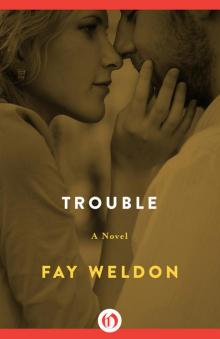 Trouble
Trouble The Heart of the Country
The Heart of the Country Wicked Women
Wicked Women Mischief
Mischief Long Live the King
Long Live the King Remember Me
Remember Me Worst Fears
Worst Fears Chalcot Crescent
Chalcot Crescent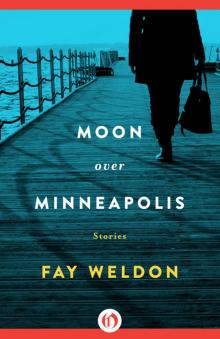 Moon Over Minneapolis
Moon Over Minneapolis The New Countess
The New Countess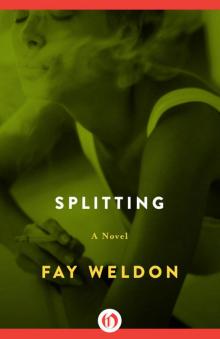 Splitting
Splitting After the Peace
After the Peace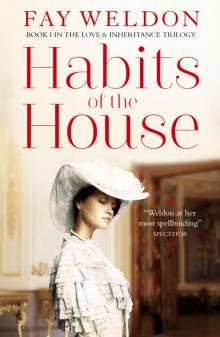 Habits of the House
Habits of the House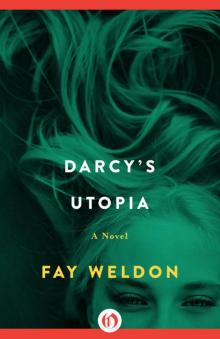 Darcy's Utopia
Darcy's Utopia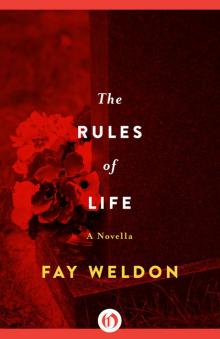 The Rules of Life
The Rules of Life Kehua!
Kehua! Before the War
Before the War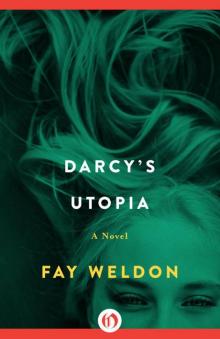 Darcy's Utopia: A Novel
Darcy's Utopia: A Novel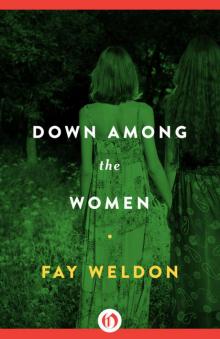 Down Among the Women
Down Among the Women Letters to Alice
Letters to Alice 3 Great Historical Novels
3 Great Historical Novels Female Friends
Female Friends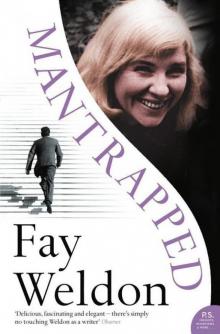 Mantrapped
Mantrapped The Bulgari Connection
The Bulgari Connection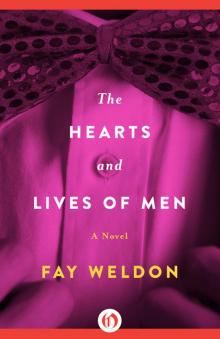 The Hearts and Lives of Men
The Hearts and Lives of Men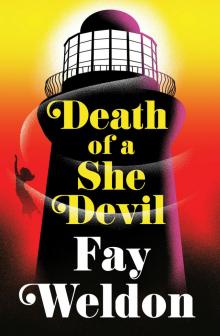 Death of a She Devil
Death of a She Devil